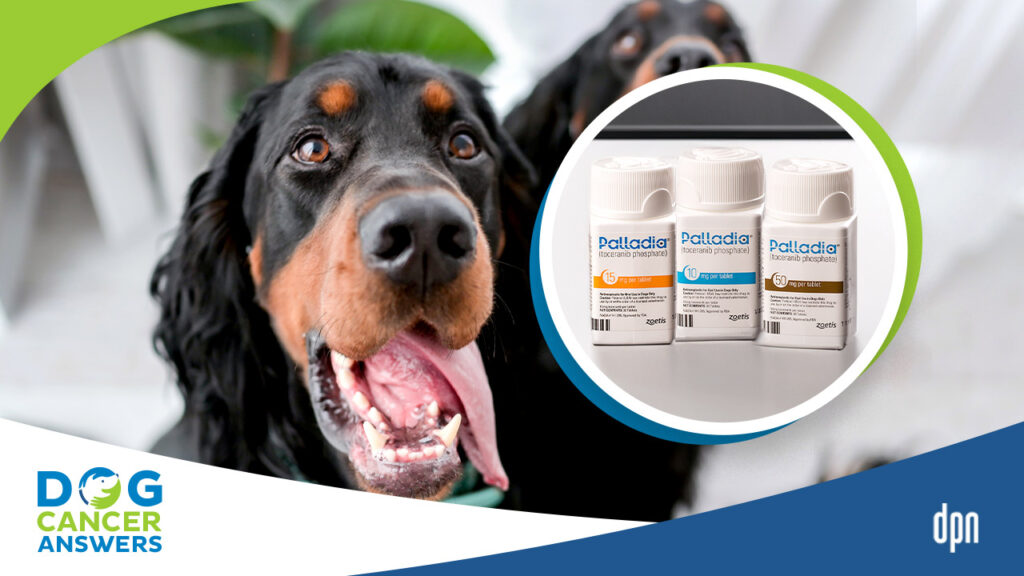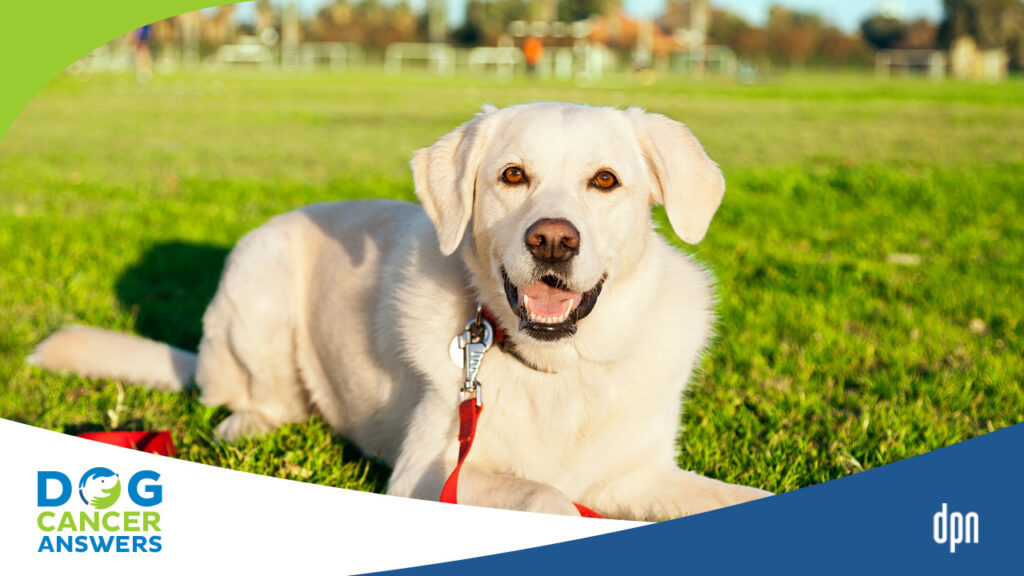EPISODE 98 | RELEASED November 30, 2020
Flea and Tick Prevention: Factors to Consider When Choosing a Product │ Dr. Nancy Reese Q&A
Fleas and ticks are a problem. Not only do they carry illnesses, but dogs with an infestation risk anemia.
SHOW NOTES
Beatrice calls in wondering how to protect her dog with cancer from fleas and ticks. Dr. Nancy addresses this common concern for pet parents by covering some of the following topics: alternative ideas to controlling fleas and ticks when your dog goes outside, why environmental conditions matter when choosing the best flea & tick protocols, how to avoid overexposure to parasiticide toxins, and her expert advice on why it is important to reduce your dog’s risk factors of getting fleas and ticks when they are undergoing chemotherapy treatments.
[00:00:00] >> Dr. Nancy Reese: I’m a big believer in not using something on or in your dog, unless there’s significant exposure. I know a lot of dogs that are on flea and tick medication when they really have no exposure to flea and ticks, but they’ve been told that they should have their animals on it.
[00:00:20] >> Announcer: Welcome to Dog Cancer Answers, where we help you help your dog with cancer. Here’s your host, James Jacobson.
[00:00:28] >> James Jacobson: Hello friend. On today’s question and answer episode, we’re talking about alternatives to traditional flea and tick products for your dog. One of our trusted veterinary partners, Dr. Nancy Reese joins us again. Dr. Nancy is a practicing small animal veterinarian with over 30 years of clinical experience.
[00:00:50] She earned a doctorate in veterinary medicine, a master’s degree in preventative veterinary medicine. And as if that wasn’t enough, a PhD from UC Davis, California. Dr. Nancy helped me dig through our listener line questions to pull out a topic that many dog lovers have asked. The question is, are there any safe, flea and tick prevention products or alternatives that can be used to help keep dogs away from those toxins, those really bad toxins found in many parasiticides.
[00:01:23] A parasiticide by the way, is the fancy veterinary word, uh, for medicine that kills those pesky fleas and ticks. Well, in a moment, you will hear the question posed by Beatrice, who is one of our Dog Cancer Answers listeners. And when you hear Beatrice’s question, you may be asking yourself, why self? ‘Cause I know you talk to yourself that way.
[00:01:45] Why self, how can I get my own question answered by one of those veterinary experts on Dog Cancer Answers? Well, you’re in luck, because at the end of this episode, I’ll share details about how you can call into the listener line and ask your own question. But for now, let’s get started with our returning guest, Dr. Nancy Reese. Dr. Nancy, thanks for joining us again on Dog Cancer Answers.
[00:02:11] >> Dr. Nancy Reese: Well, thank you for having me again.
[00:02:13] >> James Jacobson: Let us go to a listener question and look at your comments. Here it is.
[00:02:18] >> Beatrice: Hi, my name is Beatrice. I’m calling from Miami, Florida, and my question is, I’ve heard veterinarians say that regular flea and tick products don’t cause cancer, but I’m hesitant to use any toxins on my dog.
[00:02:36] This question came up in the Dog Cancer Support Group. And I’m wondering, what do you recommend for flea and tick prevention? Have you got any methods that are tried and tested that are successful? Thank you for addressing this.
[00:02:52] >> James Jacobson: Dr. Nancy, flea and tick?
[00:02:55] >> Dr. Nancy Reese: Well, I certainly agree with the philosophy of not applying or giving your dog things that we know are toxic. I’m a big believer in not using something on or in your dog, unless there’s significant exposure. I know a lot of dogs that are on flea and tick medication when they really have no exposure of flea and ticks. But they’ve been told that they should have their animals on it. So lifestyle makes a big difference in whether I would personally recommend a flea and tick medication in the first place.
[00:03:26] I live in an area with a lot of ticks, moderate number of Lyme disease cases. So for an outdoor dog around here, I would push more towards having them on a flea and tick prevention than a dog that goes out and walks on the sidewalk and doesn’t really come in contact with a lot of other animals. So in cases of a dog not needing flea and tick medication, then I’m all in favor of not doing it. For a long haired dog, it might mean. Keeping their coat trimmed fairly short so that you can see fleas and ticks a little easier. Having a good flea comb and after they come in from outside, doing a thorough flea combing check and looking for ticks is a, certainly a tried and true and non-toxic method. Know that larval and nymphal ticks can be so tiny that sometimes they’re hard to see, but I think between those two things, if you flea comb and check the dogs after they’ve been outside, you got a pretty good chance of catching whether they’ve picked up fleas or ticks.
[00:04:28] I have to say I haven’t seen essential oils work, or garlic, as effective flea and tick preventions. I’ve had clients come in where they say they used essential oils so they’re surprised their animals have fleas and ticks, but we see them running around. So my personal experience is that those types of things don’t work. But that may just be the ones that I’ve seen. It doesn’t mean they don’t work in all cases, but I haven’t found any those types of things to be that effective.
[00:04:53] One sort of compromise type of thing, there’s a Seresto collar that you can put on the animal it’s activated by heat from the animal’s system. They go outside while they’re there. When they come back in, you can take it off and put it back in its canister so that they’re not constantly exposed to the chemicals. They’re just exposed when they might need them. So like I said, it’s still using a chemical type of prevention, but it might be a little bit easier for somebody to take rather than putting something in their system all the time.
[00:05:26] One other thing I would say is that if you have a dog that’s allergic to fleas, you really have to balance out which is going to be worse for the animal because I’ve had dogs come in so miserable from scratching and inflaming their skin because they’re allergic to the fleas. That chronic inflammation is definitely not good for the animal, but those people that say, well, I don’t want to put anything on them that might be harmful and you watch this animal who can’t sit still because they’re scratching so much, really have to balance what is better for their quality of life. Especially since there’s that suggestion that chronic inflammation contributes to cancer. So if you have an animal who’s been scratching for six years and it really inflaming their skin, could that be bad for them?
[00:06:08] It might. So that’s the general things I would consider is that not every animal needs flea and tick prevention. What are they more likely to get harmed from the fleas and ticks or possible toxin exposure?
[00:06:21] >> James Jacobson: Are there some flea and tick products that are definitely proven to conflict with cancer therapy versus others that may be more benign.
[00:06:30] >> Dr. Nancy Reese: I think one of the big problems is that things like that are so specific that there isn’t enough testing to do. So a lot of the packages will say, this has not been tested in pregnant animals, in neonatal animals, in animals with other conditions. So there is always that caveat that they haven’t really tested to see if there’s a big problem.
[00:06:51] I would certainly be more hesitant in animal undergoing chemotherapy, both to have them exposed to flea and ticks, but also to the toxic medications, because their system is already in overload with what we’re giving them to try to treat the cancer. So again, if an animal has cancer, maybe they shouldn’t be out running around fleas and ticks and things like that anyhow, trying to keep them in a little bit of a safer environment so that they wouldn’t need to have a flea and tick medication on top of their cancer treatment.
[00:07:22] >> James Jacobson: Dr. Nancy, thank you so much. I hope that answered your question. Well, there, you have it. Exposure levels matter when it comes to taking the best steps to find an action plan, that’ll help keep your dog safe from unnecessary parasiticide toxins.
[00:07:40] You know, something I’ve actually never thought of myself was Dr. Nancy’s advice on using Seresto collars just as needed when you’re taking your dog outside. That’s actually an idea I might start to implement with my own dogs.
[00:07:56] Anyway, I want to thank our sponsor for today’s show. It’s none other than the best-selling animal health book, The Dog Cancer Survival Guide: Full Spectrum Treatments to Optimize Your Dog’s Life Quality and Longevity. It’s by Demian Dressler and Dr. Susan Ettinger. And if you’re looking for trusted advice for your dogs cancer, this is the guide to go to, because no matter what you’ve heard, there are always steps that you can take to help your dog fight and even beat cancer. This comprehensive guide is your complete reference for practical evidence-based strategies that can optimize the life quality and longevity of your dog. No matter what diagnosis or stage of cancer your dog has, this book is packed with precious advice that you can use now. And the book is easy to find wherever fine books are sold, both online and the physical bookstores and the e-book version is just $9 and 99 cents.
[00:08:59] And if you get the book direct from the publisher, you can get either the e-book or the 500 page paperback edition. You can save yourself 10% when you use the promo code PODCAST. When you check out the publisher’s website is DogCancerBook.com. Go there. Use the promo code PODCAST when you check out and you’ll save yourself an additional 10%. DogCancerBook.com. That’s the website. If you’re enjoying Dog Cancer Answers and all the things we talk about on this show, please, don’t forget to subscribe using your favorite podcast app or go to our website, DogCancerAnswers.com.
[00:09:38] You can also listen to us on YouTube or Spotify. We are everywhere. And when you subscribe, you’ll make sure that you always get the freshest, latest episode, and you may not want to listen to every episode on Dog Cancer Answers, because they may not relate to your own dog. But if you subscribe, you’ll have everything available to you and you get to choose what you want to listen to.
[00:10:02] And it’s easy and don’t forget, subscribing to our podcast is free. Also, speaking of free subscriptions, I want to urge you and encourage you to check out Dog Cancer News. It is a weekly newsletter delivered to your email box and it’s free. It’s put together by the editorial team of the people who put together dog cancer book. So it’s a vetted advice and tips and tricks and recipes and all sorts of stuff that will really help you if you have a dog that is fighting cancer. You can get the newsletter absolutely free at this website, DogCancerNews.com. Go to Dog Cancer News and you can subscribe to that newsletter for free.
[00:10:47] Did you hear that? Those touchstones remind me to actually make good on my promise that I made to you earlier on in this episode. And that’s if you have questions for one of our veterinary experts that you would like to have asked and answered on a future episode of Dog Cancer Answers, use our listener line. The telephone number to do that is (808) 868-3200. It is available 24 hours a day, seven days a week, (808) 868-3200. Again, if you ever want to reach us, you can just check us out on our website where you can get the show notes and everything, and that website is DogCancerAnswers.com.
[00:11:29] Well, that is all I have for today’s episode with Dr. Nancy Reese. I want to thank our caller Beatrice for calling in and asking this really interesting question. Until next time. I am James Jacobson, and from all of us here at Dog Cancer Answers and Dog Podcast Network, we wish you and your dog, a very warm Aloha.
[00:11:54] >> Announcer: Thank you for listening to Dog Cancer Answers. If you’d like to connect, please visit our website at DogCancerAnswers.com or call our listener line at (808) 868-3200. And here’s a friendly reminder that you probably already know, this podcast is provided for informational and educational purposes only. It’s not meant to take the place of the advice you receive from your dog’s veterinarian.
[00:12:17] Only veterinarians who examine your dog can give you veterinary advice or diagnose your dog’s medical condition. Your reliance on the information you hear on this podcast is solely at your own risk. If your dog has a specific health problem, contact your veterinarian. Also, please keep in mind that veterinary information can change rapidly, therefore, some information may be out of date. Dog Cancer Answers is a presentation of Maui Media in association with Dog Podcast Network.
Hosted By
SUBSCRIBE ON YOUR FAVORITE PLATFORM
Topics
Editor's Picks
CATEGORY







